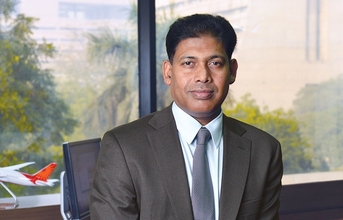
Along with Wipro Ltd, HCL Technologies and the Indian Institute of Science, Boeing has created the joint Aerospace Network Research Consortium (ANRC). It is progressing well and Prat believes it is brining huge benefits to the Indian aerospace sector.
"This is very high-end network consortium. If you look at the evolution of wireless networking technologies on board, it has all kinds of possibilities. For example, if you could have low energy wireless systems on board, then you could have telemetry on real time conditions of different equipment on the aircraft to monitor that and it changes the game completely.
"I know this sounds a bit futuristic but if you look at the aviation system it evolved from fly by rope to fly by wire to fly by light. So we are at a cutting edge of that sort of evolution with our consortium partners. It's a futuristic technology and will take some time to come by but between now and then we are doing some interesting innovations which we will look to put into the next generation platforms as well," he informs.
By the way, about 100 research papers have been produced at IISc based on ANRC's research along with 25 theses created on the consortium's work. And nearly, hundred interns from various universities have been enrolled in the last six years. Boeing's Research and Technology Centre in Bangalore continues to play a key role for its global activities and also serves as the hub of ANRC.
Boeing is contributing further to bridge the gap between industry and academia with meaningful collaborations. It also has an ongoing partnership with IIT-Mumbai for the National Centre for Aerospace Innovation & Research (NCAIR) to promote aerospace manufacturing capability development.
"It goes all the way from training our suppliers for getting NADCAP (National Aerospace and Defense Contractors Accreditation Program) accreditation to really helping them solve real time problems. The ultimate goal is to create a globally competitive supply chain," Prat says.
According to Boeing's own estimates there will be a demand for more than 1,600 new airplanes in India over the next 20 years, valued at $205 billion. How much of this does Prat see coming Boeing's way? He doesn't really have to think when replying to this one. "We want more than our fair share," he says without hiding his smile.
Then he explains: "If you look at this market, we have slightly more than 50 percent share; we do pretty well on the twin-aisle segment where we have disproportionate share of the market. But single aisle segment is very competitive. We have a very strong competition and we would want to out-compete them. We have a fantastic product to improve on - 737 NG. Overall, our aspiration is to get more than the fair share of the commercial aerospace market in India. And we are very confident given the proven economics of our products."


























